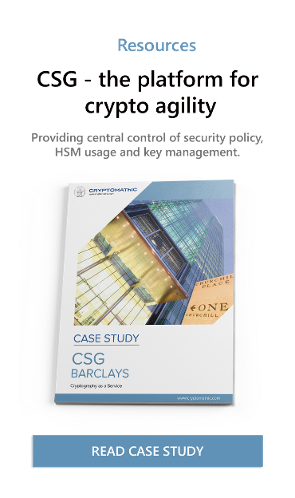
On June 11, 2016, Whitfield Diffie, a Technical Advisory Board member at Cryptomathic, and Martin E. Hellman, Professor Emeritus of Electrical Engineering at Stanford University, were awarded the 2015 ACM A.M. Turing Award for their important contributions to modern cryptography. This was officially announced by the ACM, the Association for Computing Machinery, in honor of Alan M. Turing, the British mathematician whose contributions to cryptography helped during World War II with the Allied crypto-analysis of the German Enigma cipher. Google, Inc. funds this prize of $1 million for its recipients. The prestigious Turing Award is referred to as the “Nobel Prize of Computing.”
As cryptography pioneers, Diffie and Hellman had the foresight to understand the necessity for a more practical encryption standard to defend critical data from brute-force attacks. Their ground-breaking 1976 paper, “New Directions in Cryptography,” introduced an algorithm that introduced asymmetric and public-key cryptography concepts. Forty years later, these encryption methods are now incorporated into many of the security protocols that are in use on the Internet. The duo’s prediction of a future where it would be commonplace for individuals to communicate through electronic networks has come to fruition.

Today, the Diffie-Hellman Protocol for public-key cryptography has become a part of everyday life. From daily Internet communications to banking transactions, encryption provides individuals with secure online connections for email servers, banking transactions, e-commerce sites for online purchases, and now, the cloud. Diffie and Hellman’s algorithm introduced the concept of using a public key that could be freely distributed for encryption and a private key that would remain on the receiving device for decryption.
With asymmetric cryptography, it is practically impossible to calculate the private key value from the public key, even though one will uniquely determine the other. When this process is reversed, it provides a digital signature, where the message sender will use a private key to sign the message. The recipient will authenticate the message with the public key created by the message.
In response to Diffie being honored by the ACM for his work, Cambridge Professor and Co-founder of Cryptomathic, Peter Landrock, who is a long-time friend and colleague through Cryptomathic's Technical Advisory Board, stated:
“If anyone in computer science deserves the Turing Award, it is Whit. His work in information security has made a lasting impact that continues to make online business transactions convenient and secure. Consider when you make an online banking transaction or purchase an item online with your credit card. All these transactions are protected by public key cryptography, thanks to the pioneering work of Whitfield Diffie and Martin Hellman.”
For those who know Whitfield and his current research, it would be a mistake to consider this Honor a lifetime achievement award. There is certainly more to come and look forward to from Whitfield Diffie in the future.
References
- New Directions in Cryptography (1976) by Whitfield Diffie and Martin Hellman